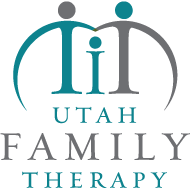Family Systems Theory: The Core of Utah Family Therapy’s Approach
Family is the cornerstone of human existence and Family Systems Therapy, a.k.a Family Systems Theory, can help strengthen a family.
It’s within our families that we first learn about relationships, communication, and ourselves.
However, families are complex systems with intricate dynamics that can both nurture and challenge individuals.
Recognizing this complexity, Utah Family Therapy (UFT) uses family systems theory to address various mental health issues and relationship challenges.
In this article, we delve into the essence of family systems theory, its applications in therapy, and how UFT integrates it into its therapeutic framework.
Article Contents

Family Systems Theory: A Brief Overview
Family Systems Theory is based on the fact that individuals cannot be understood in isolation from their familial context.
Instead, each family operates as a unique system characterized by its rules, roles, and communication patterns.
Central to this theory is the concept of interconnectedness – the idea that the actions and emotions of one family member inevitably impact the entire family unit.
At the heart of family systems theory is differentiation, which refers to an individual’s ability to balance emotional closeness with autonomy within familial relationships.
According to Bowen, well-differentiated individuals can maintain their sense of self amidst familial pressures, fostering healthier relationships and emotional well-being.
Utah Family Therapy: Embracing Family Systems Therapy
At UFT, we believe effective therapy must go beyond treating individual symptoms to address the underlying relational dynamics within families.
By understanding these dynamics and promoting differentiation, we aim to empower each individual and the family to navigate life’s challenges more effectively.
Incorporating Family Systems Theory
Assessment
Our therapeutic process begins with a comprehensive evaluation of the family system.
We examine the presenting issues and the underlying patterns of interaction, communication styles, and family roles.
This comprehensive approach allows us to understand the systemic factors contributing to the clients’ struggles.
Psychoeducation
We believe in the power of knowledge to facilitate change.
Through psychoeducation, we help families understand the principles of family systems theory and how these dynamics manifest in their lives.
By raising awareness, we empower clients to recognize and challenge dysfunctional patterns.
Genogram
A genogram is a visual representation of family relationships across generations.
By mapping out family dynamics, including key events, relationships, and roles, we gain a deeper understanding of intergenerational patterns and their impact on current functioning.
This tool is a valuable resource for therapists and clients in exploring family history and identifying areas for intervention.
Therapeutic Techniques
Drawing from various therapeutic modalities, including structural, strategic, and narrative approaches, we custom-fit our engagement to address the needs of each family.
These may include boundary-setting exercises, communication skills training, and role-playing scenarios to promote healthier interactions and enhance familial resilience.
Emotional Triangles
Family systems theory introduces the concept of emotional triangles, wherein conflicts between two individuals often involve a third party.
By identifying and addressing these triangles, we help families break free from destructive patterns of conflict and foster more direct communication and problem-solving strategies.
Embracing Diversity
Recognizing that every family is unique, we approach therapy with cultural humility and sensitivity to diversity.
Whether addressing issues related to race, ethnicity, sexual orientation, or religious beliefs, we strive to create a safe, engaging, and welcoming environment where all individuals feel valued and respected.
Applying Family Systems Theory in Practice
Example of our Family Systems Theory may work:
Consider the case of the Johnson family, who sought therapy due to escalating conflicts between parents and their adolescent son.
Through a series of sessions, the therapist would conduct a genogram, which could reveal the family history of strained relationships and unresolved conflicts.
Using the genogram as a guide, the therapist would help the Johnsons identify recurring communication patterns and emotional triangles that perpetuate conflict.
Through experiential exercises and role-playing, the family could learn new strategies for expressing emotions, setting boundaries, and resolving conflicts constructively.
Over time, the family could experience a greater connection and profound transformation in their relationships.
By embracing the principles of family systems theory and committing to change, they could develope greater empathy, understanding, and cohesion as a family unit.
Summary
Family systems theory provides a framework for understanding and connection, addressing the complex dynamics within families.
At Utah Family Therapy, we integrate this theory into our therapeutic approach, recognizing that lasting change occurs when individuals and families work together to foster healthy relationships and communication patterns.
By embracing the interconnectedness of families and promoting differentiation, we empower our clients to navigate life’s challenges with resilience and compassion.
Action Steps
Research and Contact
Research Utah Family Therapy to learn about our approach, therapists, and services.
Contact us via phone at 801.901.0279 or email to inquire about scheduling an initial consultation or appointment.
Initial Consultation
Schedule a consultation with a therapist at Utah Family Therapy.
During this session, you’ll have the opportunity to discuss your family’s concerns, goals for therapy, and any questions or expectations you may have to determine if our approach aligns with your needs and goals.
Complete Intake Forms
Before your first therapy session, you may be asked to complete intake forms, which typically include questions about your family history, current challenges, and personal information.
Fill out these forms thoroughly and honestly to provide the therapist with a comprehensive understanding of your family’s situation.
Attend Therapy Sessions
Commit to attending family therapy sessions as scheduled.
Depending on your family’s needs and preferences, therapy sessions may be conducted individually, as a family unit, or a combination of both.
Be open and receptive to the therapeutic process and actively participate in discussions and exercises facilitated by the therapist.
Engage in Homework Assignments
Between therapy sessions, your therapist may assign homework exercises or tasks designed to reinforce skills learned in therapy and promote progress outside of sessions.
Take these assignments seriously and make a concerted effort to complete them as instructed.
Communicate Openly
Practice openly and honestly with your therapist throughout the therapeutic process.
Share your thoughts, feelings, and concerns openly, and don’t hesitate to ask questions or seek clarification when needed.
Your therapist is there to support you and guide you every step.
Implement Strategies
Be willing to implement strategies and techniques discussed in therapy into your daily life.
This may include practicing practical communication skills, setting boundaries, and implementing conflict resolution strategies within your family dynamics.
Attend Regularly
Consistency is key in therapy.
Attend therapy sessions regularly and make therapy a priority in your family’s schedule.
Be punctual and arrive prepared to engage in the therapeutic process actively.
Be Patient and Persistent
Remember that therapy is a journey, not an event, and progress may not happen overnight.
Be patient with yourself and your family, and trust the therapeutic process.
Stay committed to attending therapy sessions and implementing recommended strategies, even during challenging times.
Provide Feedback
Offer feedback to your therapist about your experience in therapy, including what’s working well and areas for improvement.
Your input is valuable in shaping the therapeutic process and ensuring that treatment remains beneficial and effective for your family.
By following these action steps, families can actively engage in the therapeutic process at Utah Family Therapy and work towards positive growth, healing, and improved family dynamics.
If you’re finding that you or your child needs a more in-depth approach to therapy, through our sister company we offer intensive outpatient programs for teens and adults.
